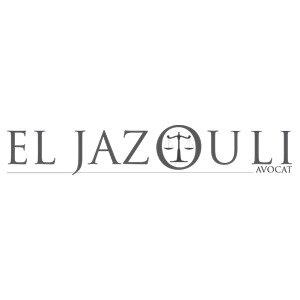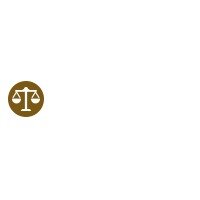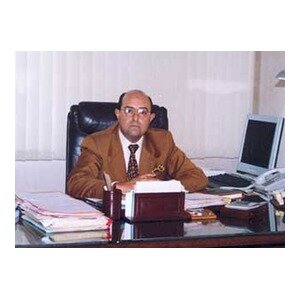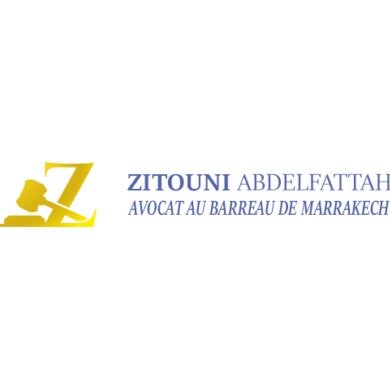Best Energy Regulatory Law Lawyers in Marrakesh
Share your needs with us, get contacted by law firms.
Free. Takes 2 min.
List of the best lawyers in Marrakesh, Morocco
About Energy Regulatory Law in Marrakesh, Morocco
Energy Regulatory Law in Marrakesh, Morocco, refers to the set of legal rules and regulations governing the production, distribution, sale, and consumption of energy within the region. As part of Morocco’s broader commitment to renewable energy and sustainable development, energy laws cover traditional sources such as oil and gas, as well as increasing investments in solar, wind, and hydroelectric power. These laws are influenced by national legislation and specific municipal regulations within Marrakesh, aiming to balance public interest, environmental protection, and the promotion of private sector involvement.
Why You May Need a Lawyer
Individuals and businesses might need legal assistance in Energy Regulatory Law for a variety of reasons. Common situations include:
- Navigating permits and licensing for energy projects or installations
- Reviewing or negotiating contracts for the sale or purchase of energy
- Addressing disputes with energy suppliers, regulatory authorities, or project partners
- Complying with environmental and safety regulations related to energy production and usage
- Dealing with issues around energy tariffs, subsidies, and incentives
- Foreign investment in Morocco’s growing renewable energy sector
- Land use and zoning concerns in deploying energy infrastructure
- Understanding consumer rights concerning electricity or gas supply
A lawyer with expertise in energy regulation can help you navigate these complex matters, avoid costly mistakes, and represent your interests before authorities or in court.
Local Laws Overview
Marrakesh, like all Moroccan cities, operates under the national legal framework shaped by multiple statutes and regulations. Some key aspects relevant to energy regulation include:
- The National Office of Electricity and Drinking Water (ONEE): Responsible for the regulation of electricity and water sectors, including the issuance of licenses and overseeing compliance.
- Renewable Energy Law No. 13-09: Provides the legal basis for private and public investments in renewable projects, allowing self-production, grid connection, and sale of surplus energy.
- Energy Efficiency Law No. 47-09: Focuses on promoting energy efficiency in buildings, industry, and transportation, including enforcement of efficiency standards.
- Investment Incentives: Both local and foreign investors benefit from various incentives, but these programs require strict legal compliance and due diligence.
- Environmental Impact Assessment (EIA): All major energy projects must undergo EIA approval before commencement, ensuring minimal environmental harm.
In Marrakesh, additional municipal rules may apply, especially regarding urban planning, construction permits, and adherence to local sustainability policies. Understanding both national and local requirements is critical for operating legally and successfully.
Frequently Asked Questions
What entities regulate energy projects in Marrakesh?
Energy regulations are primarily overseen by the National Office of Electricity and Drinking Water (ONEE), the Moroccan Agency for Sustainable Energy (MASEN) for renewables, and various municipal authorities for land use and construction.
Can foreigners invest in energy projects in Marrakesh?
Yes, Morocco encourages foreign investment in energy, particularly renewables, but investors must comply with licensing, ownership, and local partnership rules.
What is required to obtain a permit for a solar energy project?
Permits typically require a technical and environmental assessment, land use approval, and an application to the relevant authorities showing project feasibility and compliance with safety standards.
What are the main incentives for renewable energy in Morocco?
Incentives can include tax breaks, customs exemptions for equipment, and guaranteed grid access for renewable energy producers.
How are energy tariffs set in Marrakesh?
Tariffs are regulated by the government with input from ONEE and may differ for industrial, commercial, and residential customers. Negotiations may occur for large-scale or independent producers.
What legal obligations do energy companies have regarding environmental protection?
All energy producers must comply with stringent environmental regulations, including conducting Environmental Impact Assessments and adhering to pollution control standards.
Can residents or businesses self-generate electricity?
Yes, under Renewable Energy Law No. 13-09, self-generation is permitted, and surplus energy can often be sold back to the grid subject to certain conditions.
What disputes can arise in the field of Energy Regulatory Law?
Typical disputes include contractual disagreements between energy suppliers and customers, land use conflicts, regulatory compliance challenges, and tariff disputes.
Is legal representation needed when negotiating energy contracts?
Although not legally mandatory, having a lawyer is highly advisable to ensure contract terms are fair, legally binding, and compliant with local regulations.
How can I file a complaint against an energy provider in Marrakesh?
Complaints can be submitted to municipal authorities, the ONEE, or consumer protection bodies. It is helpful to seek legal advice to properly document your issue and understand your rights.
Additional Resources
If you need further assistance or more detailed information, consider contacting the following organizations:
- National Office of Electricity and Drinking Water (ONEE) - Main regulator for electricity and water services
- Moroccan Agency for Sustainable Energy (MASEN) - Oversees renewable energy development
- Ministry of Energy Transition and Sustainable Development - Sets policy and national strategies
- Moroccan Investment and Export Development Agency (AMDIE) - Support and guidance for investors
- Marrakesh Municipality - For local permissions and urban planning
- Local Bar Associations - For directories of qualified lawyers specialized in energy regulatory law
Next Steps
If you believe you need legal advice or representation regarding an energy regulatory matter in Marrakesh, follow these steps:
- Gather all relevant documentation and details about your case or project
- Make a list of your questions and objectives
- Contact a specialized lawyer or a local bar association to identify qualified energy regulatory law professionals
- Consult with the lawyer to assess your legal position, potential risks, and options
- Work closely with your legal advisor to ensure compliance with all relevant regulations and to protect your rights and interests
Advance preparation and early legal consultation can save you time, minimize risks, and help ensure the success of your project or resolution of your legal concern related to Energy Regulatory Law in Marrakesh.
Lawzana helps you find the best lawyers and law firms in Marrakesh through a curated and pre-screened list of qualified legal professionals. Our platform offers rankings and detailed profiles of attorneys and law firms, allowing you to compare based on practice areas, including Energy Regulatory Law, experience, and client feedback.
Each profile includes a description of the firm's areas of practice, client reviews, team members and partners, year of establishment, spoken languages, office locations, contact information, social media presence, and any published articles or resources. Most firms on our platform speak English and are experienced in both local and international legal matters.
Get a quote from top-rated law firms in Marrakesh, Morocco — quickly, securely, and without unnecessary hassle.
Disclaimer:
The information provided on this page is for general informational purposes only and does not constitute legal advice. While we strive to ensure the accuracy and relevance of the content, legal information may change over time, and interpretations of the law can vary. You should always consult with a qualified legal professional for advice specific to your situation.
We disclaim all liability for actions taken or not taken based on the content of this page. If you believe any information is incorrect or outdated, please contact us, and we will review and update it where appropriate.















